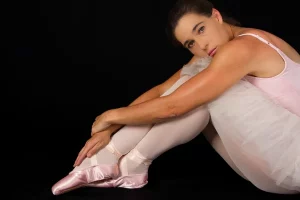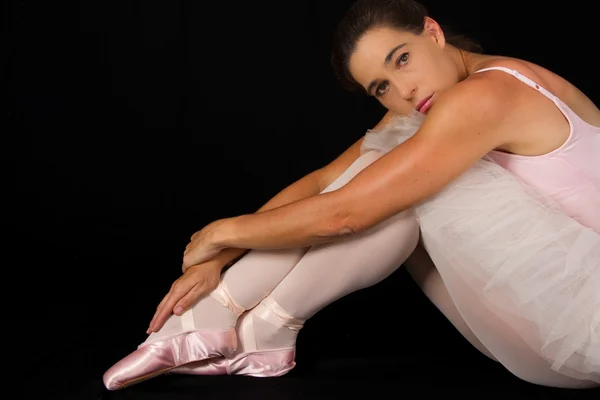Although dancing is a great activity and job that boosts physical and mental wellbeing, it is also one of the most demanding jobs (if you are a professional dancer), which can cause a strain on the mental health of professional dancers.
A study has linked professional dancing to increasing risks of mental health issues like anxiety, eating disorders, and compulsive-obsessive disorders. The idea of perfectionism in professional dancing has crippled the mental health of many.
Most dancers have to resort to harmful drugs to increase their quest for perfectionism. In the end, they become addicts. According to a survey, 75% of dancers had reported having dealt with mental health challenges within five years (at the time when this survey was taken).
As a dancer, your mental health is a priority; when it gets disrupted, it affects your overall functioning. When you are tensed, you tend to remember or perform your dance routine correctly.
You must know what mental health tips to employ to boost your overall performance as a dancer. This article discusses some crucial mental health tips for dancers.
10 Mental Health Tips for Dancers

Below are some important mental health tips for dancers.
1. Learn to have enough sleep
It is said that a person spends thirty-six percent of their life sleeping, and how does this affect a dancer? Sleep refreshes your body, improves your alertness and concentration, provides memory consolidation, and restores your strength.
Most importantly, enough sleep helps with weight loss, and weight gain isn’t pleasant for dancers.
Most dancers tend to resort to weight loss pills to lose weight when they add up, especially ballet dancers. This can cause anxiety and depression in them.
It is recommended that every dancer have at least 7 to 8 hours of sleep per day.
2. Maintain a positive body image
Maintaining a positive body image is an effective mental health tip to boost the emotional health of a dancer.
Dancers are athletes that need strength and muscle to perform; without stable emotional health, they will lack the strength and zeal to perform.
Also, maintaining a positive body image makes a dancer more confident about their body, significantly increasing body flexibility and strength. You can also engage in other exercise, apart from dancing, to help you achieve this.
3. Eat healthy meals
Healthy meals aren’t just a bodily and physical health requirement; they also influence the dancer’s mental health.
Good food plays a huge role in promoting overall welling. As a dancer, stick to food rich in fibre, protein, and little carbohydrates for strength.
Avoid skipping food and avoid eating too much processed food. Too much-processed food tends to cause eating disorders which can affect you mentally. Meal planning can help you stick to a healthy diet.
5. Treat all forms of injuries with urgency
As a dancer, never ignore any injury to your body; you can’t dance through it. There is nothing like “dancing through the injury/problem.”
Apart from causing pain in your body that can affect your body flexibility, it causes you to be distressed and sad, which is bad for your concentration.
There is nothing wrong with notifying your dance coach or instructor about the injury and taking time to heal and rest. A wounded dancer isn’t a happy dancer, and a happy dancer won’t be able to perform because dancing is one athletic activity that makes you emotionally connect to the act.
Your mind needs to be relaxed for you to perform those moves and give those awesome facial expressions.
6. Dance for fun
Take time to dance just for the sheer joy of it, without worrying about perfecting every move or preparing for a performance.
This helps you reconnect with the original love and passion you have for dance, making it a source of happiness rather than stress.
Doing this can reduce burnout and remind you why you started dancing in the first place. It allows you to enjoy the moment, which can significantly boost your mood and overall mental well-being.
7. Have support system around you
Build a network of friends, family, and fellow dancers who understand the challenges and pressures of being a dancer. These people can offer emotional support, advice, and encouragement when you need it.
Having a strong support system can help you feel understood and less isolated. It provides a safe space to share your struggles and successes, which is crucial for maintaining good mental health.
8. Positive self-talk
Make a habit of speaking kindly to yourself. When negative thoughts arise, counter them with positive affirmations like, “I am improving every day,” or “I am proud of my progress.”
Positive self-talk can enhance your self-esteem and resilience. It helps you stay motivated and focused, reducing the impact of self-doubt and anxiety.
9. Journaling
Write down your thoughts, feelings, and experiences related to your dance journey. This can include your daily practices, achievements, and even your frustrations.
Journaling allows you to process your emotions and reflect on your progress. It can be a therapeutic way to express yourself and track your growth, helping you to stay grounded and aware of your mental and emotional state.
10. Talk to a therapist
Due to the competitive nature of dancing, most professional dancers tend to be very anxious and worried at the beginning of a competition, which can affect their state of mind.
If you think you are overwhelmed in your mind, do consult a therapist or a coach and talk to them. Don’t lock in down inside. It is when you talk that you get to be helped.
Conclusion
As a dancer, your mental health is a priority, and treat it as such. Stay away from negativity and never allow depressing thoughts of not how perfect you are to get into your help.
Always embrace the journey; you don’t have to be perfect at all times. When you make a mistake, accept it and improve on it without beating yourself off.








